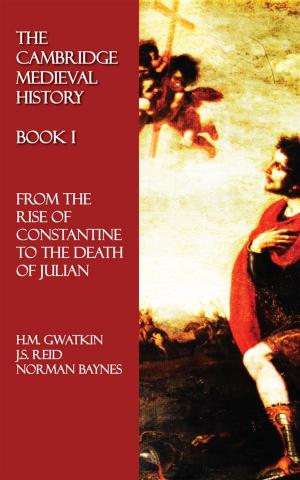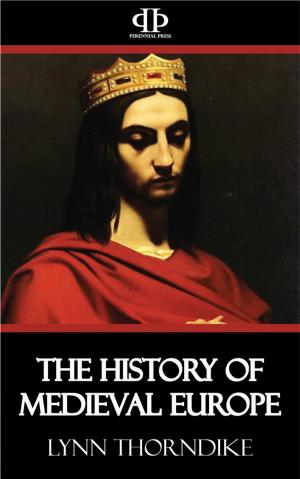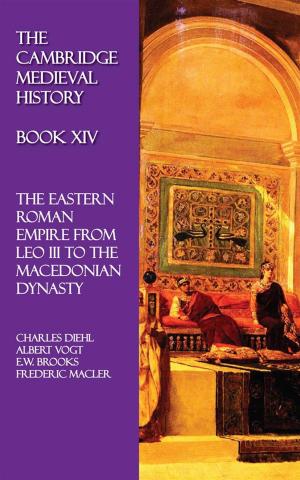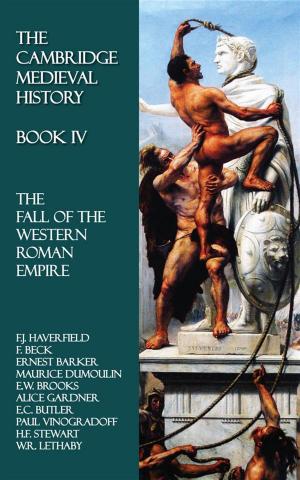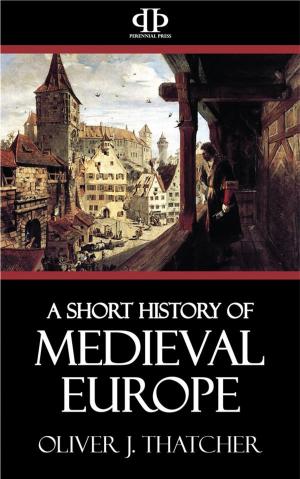Italy and Her Invaders
Volume V - The Lombard Invasion
Nonfiction, History, Civilization, Ancient History, Rome| Author: | Thomas Hodgkin | ISBN: | 9781531206390 |
| Publisher: | Perennial Press | Publication: | February 13, 2016 |
| Imprint: | Language: | English |
| Author: | Thomas Hodgkin |
| ISBN: | 9781531206390 |
| Publisher: | Perennial Press |
| Publication: | February 13, 2016 |
| Imprint: | |
| Language: | English |
THE four invading nations whose history has been already related left no enduring memorial of their presence in Italy. The Visigoth, the Hun, the Vandal, the Ostrogoth failed to connect their names with even a single province or a single city of the Imperial land. What these mighty nations had failed to effect, an obscure and savage horde from Pannonia successfully accomplished. Coming last of all across the ridges of the Alps, the Lombards found the venerable Mother of empires exhausted by all her previous conflicts, and unable to offer any longer even the passive resistance of despair. Hence it came to pass that where others had but come in like a devouring flood and then vanished away, the Lombard remained. Hence it has arisen that he has written his name for ever on that marvel of the munificence of nature
‘The waveless plain of Lombardy’.
Strange indeed is the contrast between the earlier and the later fortunes of this people, between the misty marshes of the Elbe and the purple Apennines of Italy, between the rude and lightly abandoned hut of the nomadic Langobard and the unsurpassed loveliness of the towers of Verona. From the warriors ‘fiercer than even the ordinary fierceness of the Germans’, what a change to the pale ‘Master of Sentences’, Peter the Lombard, intent on the endless distinctions which made up his system of philosophy. Nay, we may go a step further, and by a kind of spiritual ancestry connect London itself with the descendants of this strange and savage people. There is a street in London bearing the Lombard’s name, trodden daily by millions of hurrying footsteps, a street the borders of which are more precious than if it were a river with golden sands. From the solitary Elbe pastures, occasionally roamed over by some savage Langobardic herdsman, there reaches a distinct historic chain of causes and effects, which connects those desolate moorlands with the fullness and the whirl of London’s Lombard Street.
It was not however till the year 568 that the Lombards entered Italy. Between the defeat of Teias at Monte Lettere and that date, there intervened sixteen years of more or less trouble for Italy, the history of which will be told in the first two chapters of this volume. It will then be our duty to remount the stream of time through several centuries, in order to trace the early history of the Lombards...
THE four invading nations whose history has been already related left no enduring memorial of their presence in Italy. The Visigoth, the Hun, the Vandal, the Ostrogoth failed to connect their names with even a single province or a single city of the Imperial land. What these mighty nations had failed to effect, an obscure and savage horde from Pannonia successfully accomplished. Coming last of all across the ridges of the Alps, the Lombards found the venerable Mother of empires exhausted by all her previous conflicts, and unable to offer any longer even the passive resistance of despair. Hence it came to pass that where others had but come in like a devouring flood and then vanished away, the Lombard remained. Hence it has arisen that he has written his name for ever on that marvel of the munificence of nature
‘The waveless plain of Lombardy’.
Strange indeed is the contrast between the earlier and the later fortunes of this people, between the misty marshes of the Elbe and the purple Apennines of Italy, between the rude and lightly abandoned hut of the nomadic Langobard and the unsurpassed loveliness of the towers of Verona. From the warriors ‘fiercer than even the ordinary fierceness of the Germans’, what a change to the pale ‘Master of Sentences’, Peter the Lombard, intent on the endless distinctions which made up his system of philosophy. Nay, we may go a step further, and by a kind of spiritual ancestry connect London itself with the descendants of this strange and savage people. There is a street in London bearing the Lombard’s name, trodden daily by millions of hurrying footsteps, a street the borders of which are more precious than if it were a river with golden sands. From the solitary Elbe pastures, occasionally roamed over by some savage Langobardic herdsman, there reaches a distinct historic chain of causes and effects, which connects those desolate moorlands with the fullness and the whirl of London’s Lombard Street.
It was not however till the year 568 that the Lombards entered Italy. Between the defeat of Teias at Monte Lettere and that date, there intervened sixteen years of more or less trouble for Italy, the history of which will be told in the first two chapters of this volume. It will then be our duty to remount the stream of time through several centuries, in order to trace the early history of the Lombards...



